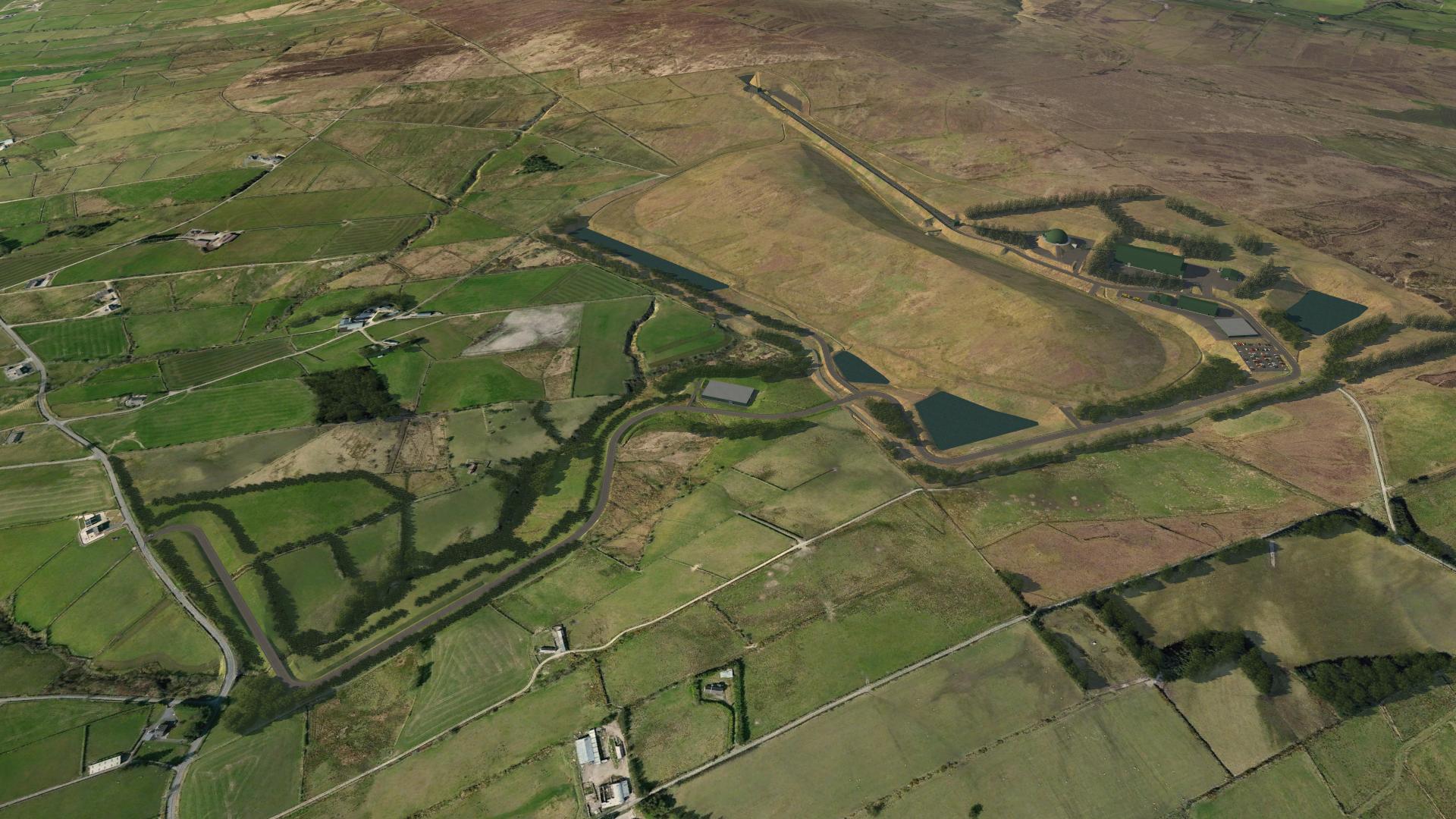
Article
Dalradian Planning Update: Final Stage in Planning Process – the Public Inquiry – Underway
In 2017, we submitted our planning application to build a modern, polymetallic mine in Tyrone to Northern Ireland’s Department for Infrastructure (DfI). Since then, the application has been advancing through a rigorous review process, including over 100 meetings with regulators and statutory consultees, and multiple public consultation events, to ensure our project meets the highest standards and addresses the perspectives of all stakeholders.
In 2021, DfI referred the application to the Planning Appeals Commission (PAC) to hold an independent public local inquiry, following which a decision will be made on the application.
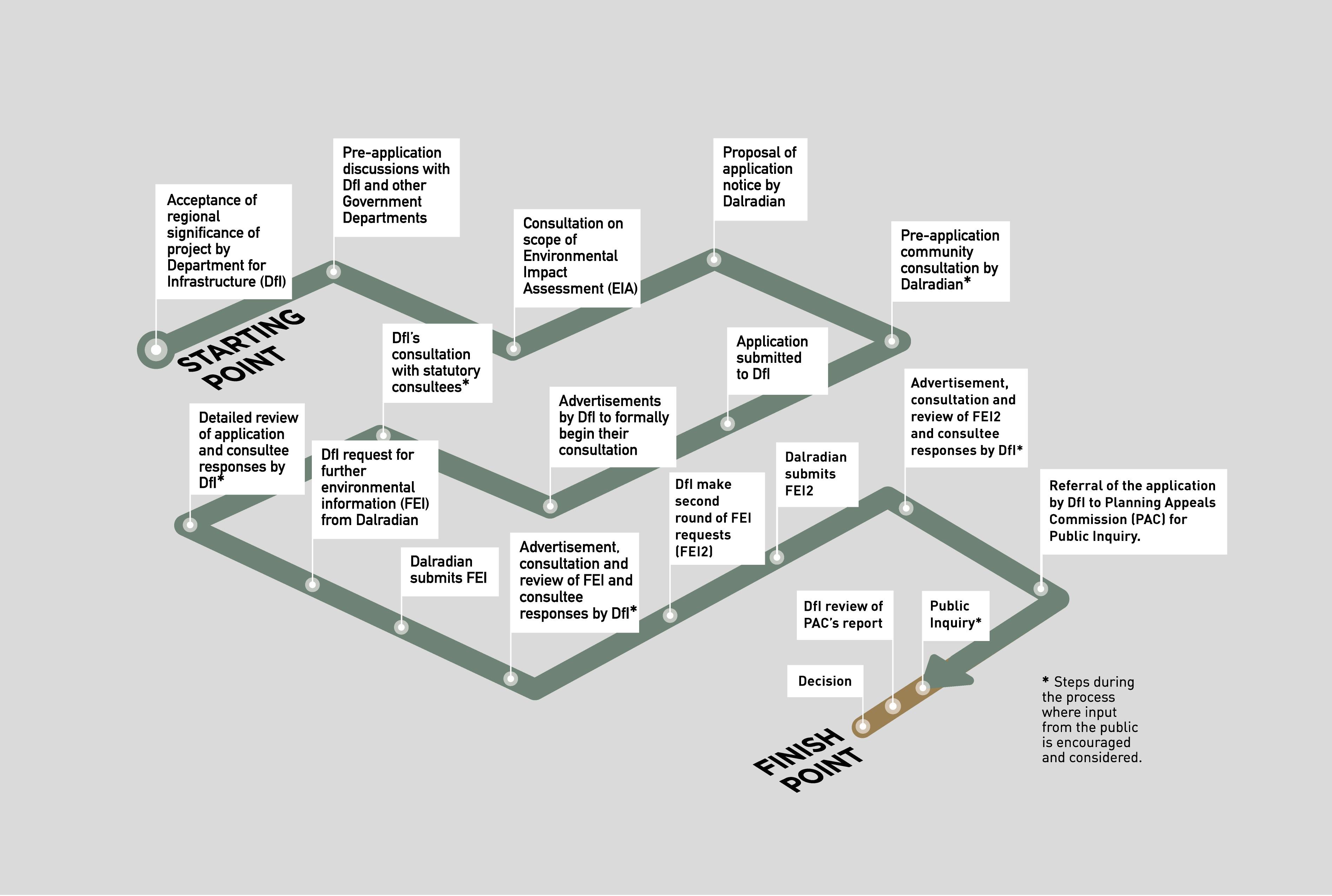
What is the inquiry?
The public local inquiry is a standard procedure and critical milestone for regionally significant applications such as Dalradian’s, entailing an independent public review of the project and associated social, economic and environmental considerations by the PAC.
The inquiry commenced with a public pre-inquiry meeting on 20 March 2024 to determine the schedule for the remainder of the process and set out procedures for all participants. Dates for the the submission of Statements of Case and Rebuttals have been set for 18th October 2024 and 25th November 2024 respectively, with the hearing to commence on 13th January 2025.
Following the inquiry, the PAC will prepare a report with its recommendation on permitting the project. This will inform a final decision by DfI.
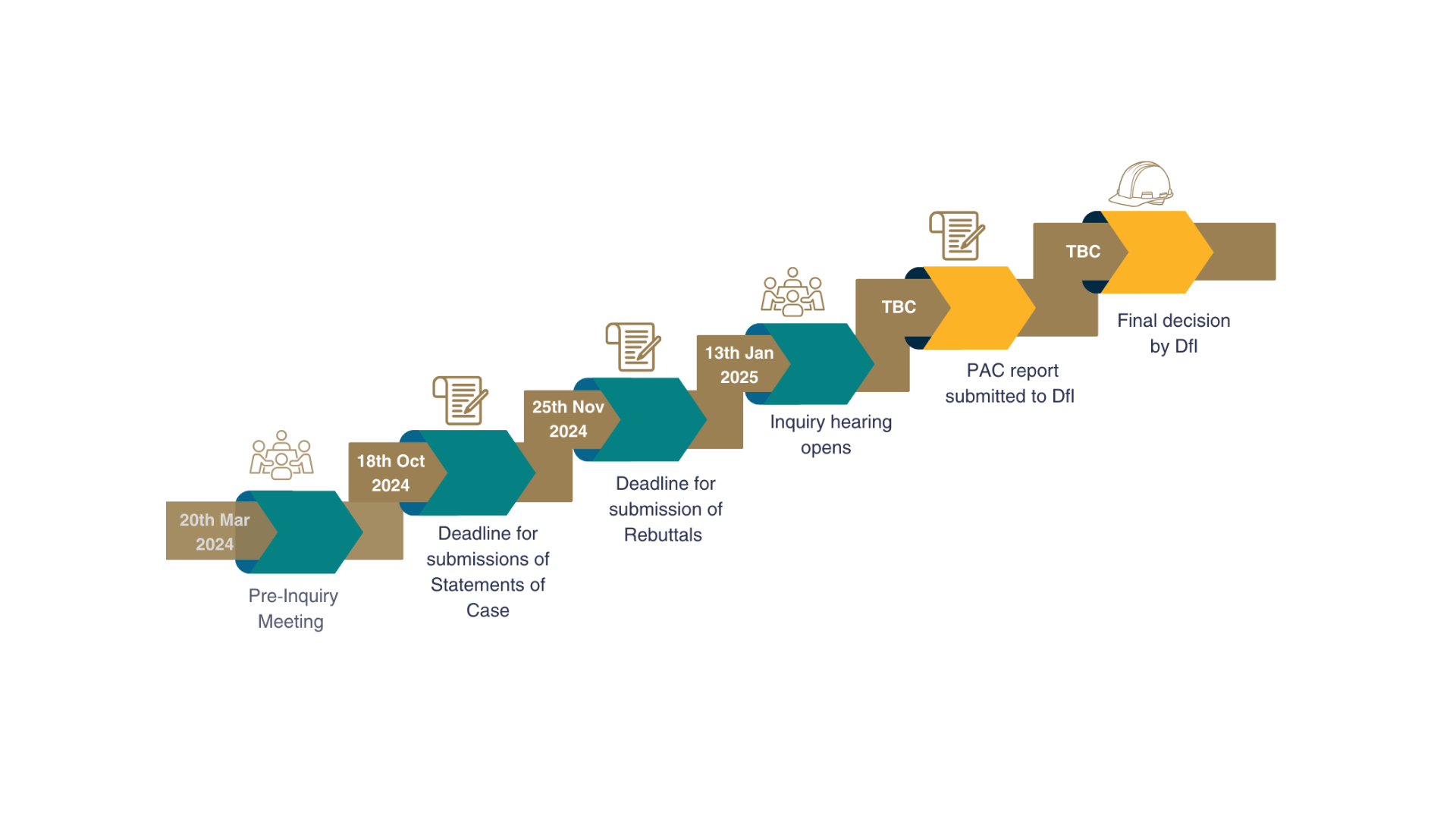
What is Dalradian’s view of the inquiry?
We look forward to engaging in this important phase of the permitting process. Commenting on reaching this critical milestone, our CEO, Patrick F.N. Anderson, said:
“We’re delighted to welcome commencement of the public inquiry by the Planning Appeals Commission on our planning application for a modern, underground, polymetallic mine in Tyrone. This is the final stage in the planning process that started in 2016.
“We fully support the holding of a public inquiry. It provides another opportunity for the project to be scrutinised by independent experts and another forum for review of public representations. This is one of the most comprehensive planning applications in Northern Ireland and reflects the extensive amount of environmental information submitted.
“Approval of the project will initiate one of the largest-ever US investments in Northern Ireland: over $1 billion to develop and operate the project, creating a host of new opportunities for Tyrone. Our application can aid in establishing a “Centre of Excellence” to boost local manufacturers already producing equipment for both mineral production and environmental protection. The proposed carbon neutral mine will produce copper, gold and silver, metals that are contributing to our shift to net zero through renewable technology."
Who are the PAC and how do they work?
The Planning Appeals Commission is a statutory tribunal, independent of any government department or agency. Members of the PAC are public appointees and are called commissioners. They have varied backgrounds and qualifications including town planning, architecture, and law. The PAC is responsible for organising public local inquiries into planning applications. The Chief Commissioner will appoint commissioners to conduct the proceedings.
What happens at the inquiry hearing?
The PAC will conduct the inquiry openly, fairly and impartially. The commissioners will ensure that all parties are given an opportunity to express their views and will direct when people should speak or ask questions.
The PAC will publish a timetable of dates, topics and expected attendees in advance of the opening session of the hearing. The commissioners will lead a round table discussion on each topic. Before moving on to the next topic, the commissioners may give all parties an opportunity for formal questioning or submissions to address any matters which were not covered in the round table discussion.
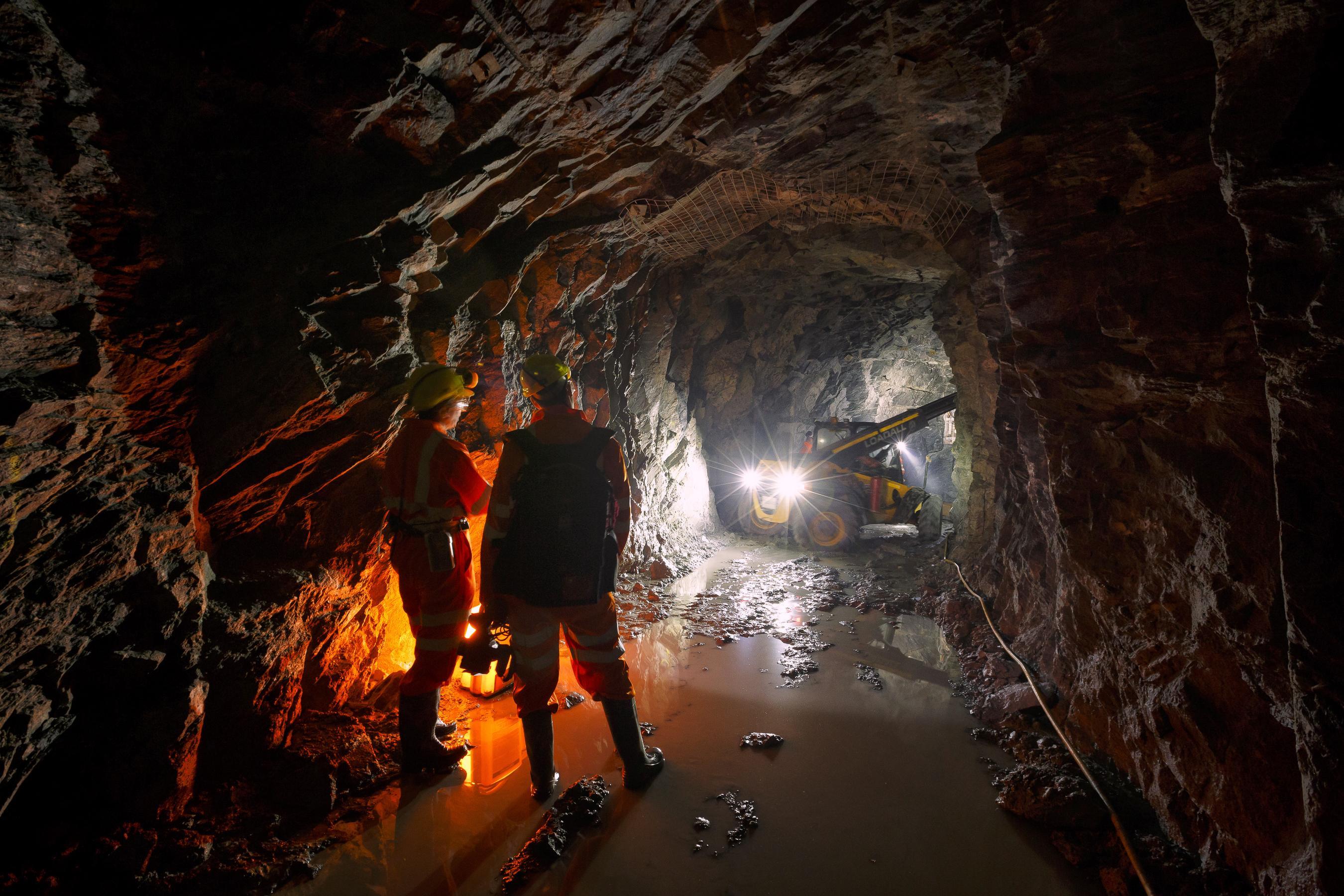
What happens after the public inquiry hearing?
When all the evidence has been heard, the commissioners will close the proceedings and indicate when they expect to deliver their report. The commissioners will examine all the evidence presented, visit the sites and prepare the report. The report will not summarise the evidence but will set out a reasoned consideration of the main issues and recommend how the application should be determined. DfI will then review the PAC’s report and announce a decision on our application.
If approved, this carbon neutral (net zero) project will deliver jobs, training, investment, community development, and supplier opportunities on a much larger scale for the region. The construction stage alone will see investment of more than £100 million over an 18-24 month period and create a minimum of 300 jobs. As such, the project aligns well with the aims of Northern Ireland’s new economic vision to create good jobs, address regional imbalance, improve productivity and support the achievement of Net Zero by 2050.
Reference: https://www.pacni.gov.uk/curraghinalt-project-dalradian

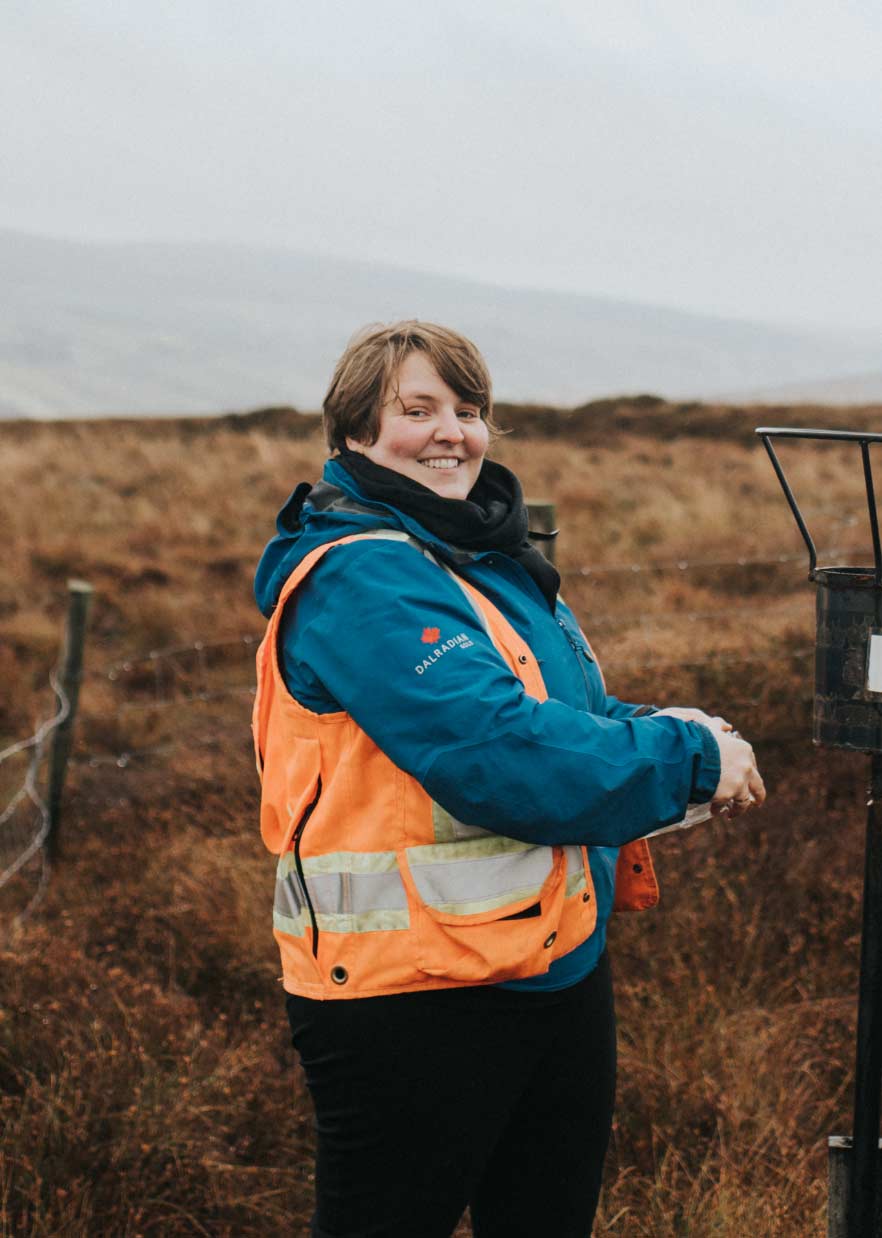
Your support matters
Support our plans to create jobs, strengthen the local community and respect the environment. The Department for Infrastructure will take your views into account. Help make our plans a reality.
Your letter of support will be sent directly to the Department for Infrastructure. Dalradian will not see your letter, nor any of your details.
Great things can happen with your support
Support our plans to create jobs, strengthen the local community and respect the environment. The Department for Infrastructure will take your views into account. Help make our plans a reality.
Customise a letter of support in two simple steps:
Provide your personal details
This will signal your support to the Department for Infrastructure. You can choose to keep these details private.
Tell the Department for Infrastructure why you support the project
Please tick all the elements you like about the proposed project.
Dalradian will not see your letter, nor any of your details. Your letter of support will be sent directly to the Department for Infrastructure
